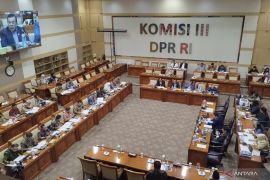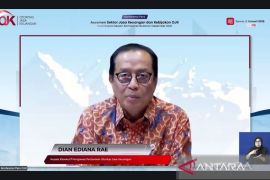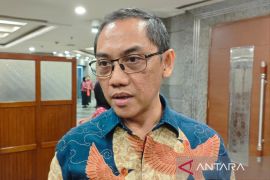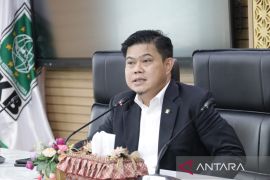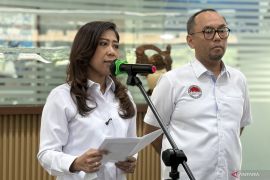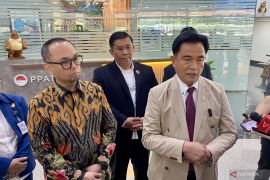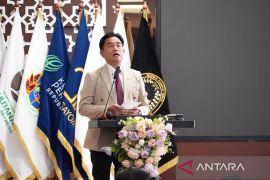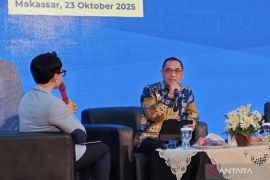The practice creates a heavy financial burden, with victims even losing the ability to meet their basic needs, such as food, education, and health.
Thus, online gambling has become a serious threat to the social and economic stability of society.
The illicit activity is not only harmful in terms of legal and moral aspects but also has profound social impacts, including creating new poverty, damaging family relationships, and causing psychological dependence.
With the rapid development of technology, access to online gambling has become increasingly easier, requiring serious measures from the government, the community, and relevant parties to eliminate it.
Coordinating Minister for Community Empowerment, Muhaimin Iskandar, has described online gambling as a social disaster that creates new poverty.
He noted that new poverty due to online gambling cannot be eliminated only by one party. All parties must collaborate, from the government to community leaders, to prevent the "social disaster."
Iskandar also emphasized the importance of digital literacy to fight the trap of online gambling, which often targets vulnerable groups.
"If we do not handle it from upstream to downstream, we are worried that online gambling will increase the number of poor people in our country," he said.
Task force
The Indonesian government has taken a number of serious measures to eradicate online gambling through strategic policies. One of them has been the formation of the online gambling eradication task force.
The task force has been tasked with identifying, blocking, and taking action against online gambling activities, including blocking thousands of accounts suspected to be linked to gambling transactions.
The Financial Services Authority (OJK) and the Indonesia Anti-Scam Center are also playing an active role in tracking transactions related to online gambling.
Chair of the OJK's board of commissioners, Mahendra Siregar, emphasized the importance of collaboration between the financial sector and law enforcement institutions in combating online gambling.
The government has also increased digital content moderation to reduce public access to online gambling sites.
Communication and Digital Affairs Minister Meutya Hafid emphasized the importance of unity between stakeholders for eradicating online gambling.
She outlined two main challenges that her ministry is facing in the task, namely the massive growth of online gambling sites and coordination with large digital platforms.
While intensive supervision against online gambling is being carried out, new online gambling sites are continuing to emerge, thereby needing extraordinary efforts.
In addition, coordination with digital platforms requires repeated discussions to encourage them to comply with the rules and support the eradication of online gambling.
Despite the challenges, Hafid expressed optimism that the unity of the Red and White Cabinet under the leadership of President Prabowo Subianto will help tackle the issue optimally.
According to her, preventive measures must also include technology developers.
Digital education and literacy
In addition to law enforcement, education and digital literacy are important steps to keep people from getting trapped in online gambling.
The Indonesian government, through its Family Hope Program (PKH), and community leaders have been actively helping people to understand the dangers of online gambling.
The dissemination of information is aimed at improving people's awareness about online gambling as a form of fraud that gives empty promises of profits.
In this regard, digital literacy is needed to help people understand the patterns and avoid them.
Victims of online gambling often experience damage to their social relationships, including with their families.
Psychologist Ratih Ibrahim emphasized that the role of the family is very important in the recovery process of online gambling victims. Emotional support from the family, such as listening without judging and providing encouragement, can help victims recover psychologically.
However, emotional support alone is not enough. The victim's family also needs to provide technical support, such as managing the victim's finances, preventing access to money that can be used for gambling, and encouraging the victim to participate in positive activities such as sports or social activities.
These steps are aimed at shifting the victim's attention from online gambling and helping them rebuild a better life. The holistic approach also includes psychological therapy and a spiritual approach.
Psychologist Sani Budiantini said that the rehabilitation of online gambling victims takes at least three months and involves a combination of psychological therapy, medication, and family support.
"This approach helps victims to neutralize the addiction's effects and return to a healthier life," she added.
Synergy
Preventing poverty due to online gambling needs the synergy of various parties, including the government, the community, and financial institutions.
The government must not only enforce the law but also create regulations and policies that support community empowerment so that they are not lured into online gambling.
Apart from that, the community also needs to play an active role in protecting those around them. Education and supervision at the family, community, and educational institution levels are essential to create collective awareness about the risks of online gambling.
Such cross-sectoral cooperation is key to breaking the chain of poverty caused by online gambling activities and practices.
Through coordinated and sustainable measures, Indonesia can protect its people from the threat of online gambling, and create a more prosperous future and better life for generations to come.
The success of combating online gambling is not only determined by firm policies but also by the collective commitment of all elements of the nation.
By prioritizing law enforcement, digital literacy, and a holistic approach to handling victims, Indonesia has a big opportunity to free its people from poverty caused by online gambling.
Translator: Anom Prihantoro, Raka Adji
Editor: Aditya Eko Sigit Wicaksono
Copyright © ANTARA 2024


